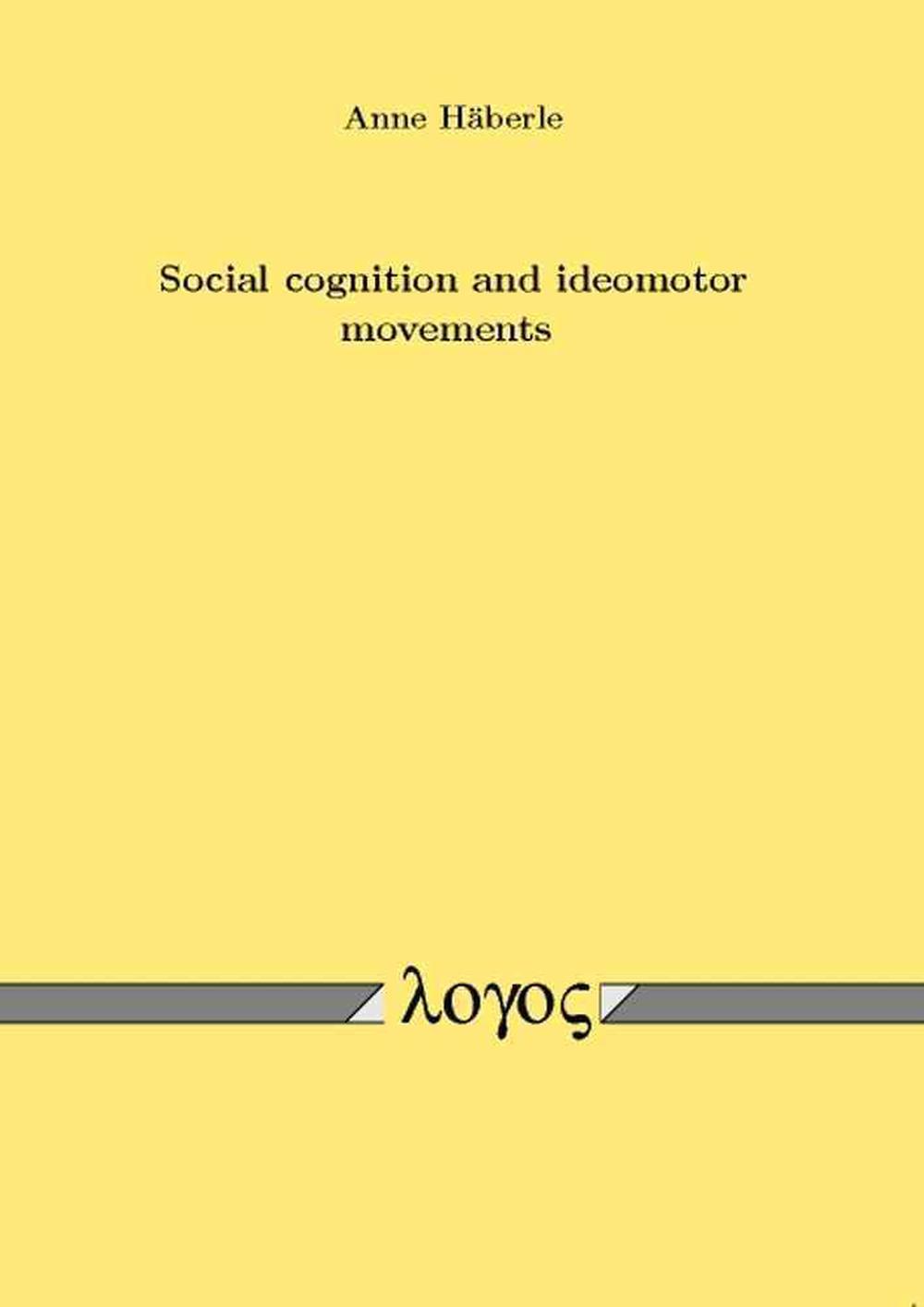
Social Cognition and Ideomotor Movements
by Anne H�berle
Social cognition and ideomotor movements Ideomotor movements are involuntary body movements emerging simultaneously with an observed goal-directed action. They closely relate to the temporal and spatial structure and also to the goal-directedness of observed actions (Knuf et. al. 2001, De Maeght & Prinz 2004). The dissertation shows that this relationship is modulated by the social context in which actions are observed: Participants observed on a computer screen another person's goal-directed actions of trying to hit a target. In a cooperative social context, participants intended the same goal-state as the person executing the action, because participants received a monetary reward whenever they saw the other person successfully hitting the target. Hence participants' ideomotor movements were found to correspond closely to the observed action and to reflect the common intention of hitting the target. In contrast, in a competitive social context, participants intended unsuccessful action outcomes rather than successful hits, because they lost money, whenever they saw the other person successfully hitting the target.In this situation, ideomotor movements corresponded less to the observed actions and reflected the participants' own intentions of achieving unsuccessful action outcomes. Hence ideomotor movements measure goal-directed social perceptions occurring during the observation of goal-directed actions.
Paperback
English
Brand New
Long Description
Social cognition and ideomotor movementsIdeomotor movements are involuntary body movements emerging simultaneously with an observed goal-directed action. They closely relate to the temporal and spatial structure and also to the goal-directedness of observed actions (Knuf et. al. 2001, De Maeght & Prinz 2004). The dissertation shows that this relationship is modulated by the social context in which actions are observed: Participants observed on a computer screen another person's goal-directed actions of trying to hit a target. In a cooperative social context, participants intended the same goal-state as the person executing the action, because participants received a monetary reward whenever they saw the other person successfully hitting the target. Hence participants' ideomotor movements were found to correspond closely to the observed action and to reflect the common intention of hitting the target. In contrast, in a competitive social context, participants intended unsuccessful action outcomes rather than successful hits, because they lost money, whenever they saw the other person successfully hitting the target. In this situation, ideomotor movements corresponded less to the observed actions and reflected the participants' own intentions of achieving unsuccessful action outcomes. Hence ideomotor movements measure goal-directed social perceptions occurring during the observation of goal-directed actions.
Details

